Abstract
Simulated addict urine samples containing drugs were sent to collaborating hospital administrators and officials of methadone centers, who then forwarded the samples to their supporting laboratories as though they were ordinary specimens from patients. The laboratories, which were already participating in the proficiency testing program of the Center for Disease Control, received the identical test samples in the mail as part of a regular Center for Disease Control proficiency testing program. Most of the laboratories performed acceptably with the mail-distributed samples, but many performed poorly when the identical samples were sent to them as if they were specimens from patients. Because of the limitations of proficiency testing involving mail-distribution samples and the impracticality of extensive testing with blind samples on a national level, the Center for Disease Control proposes to compliment its regular proficiency testing program with a monitored, onsite program of performance evaluation.
Full text
PDF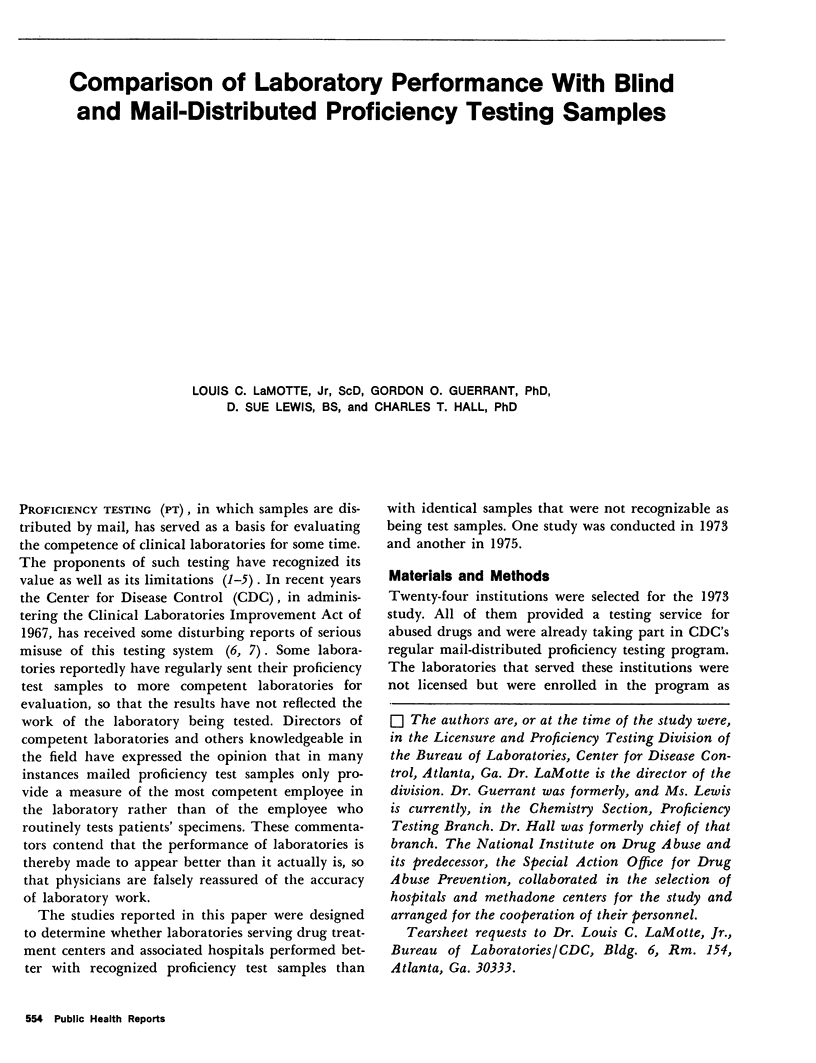
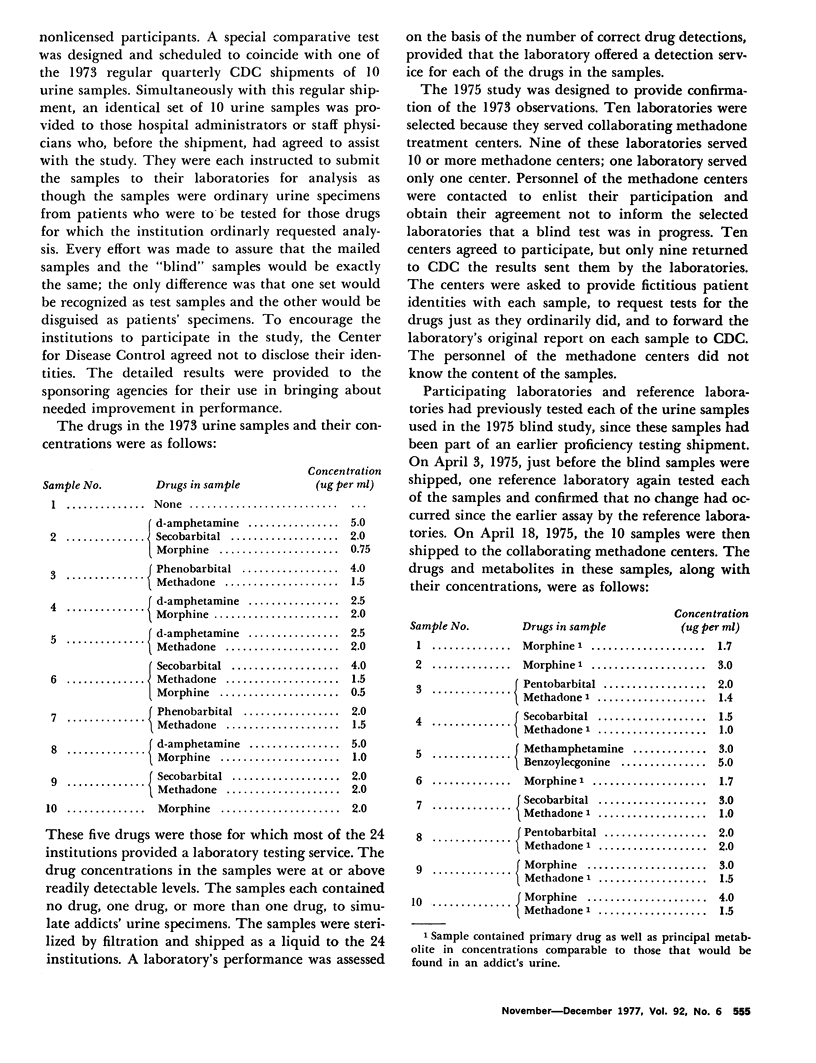
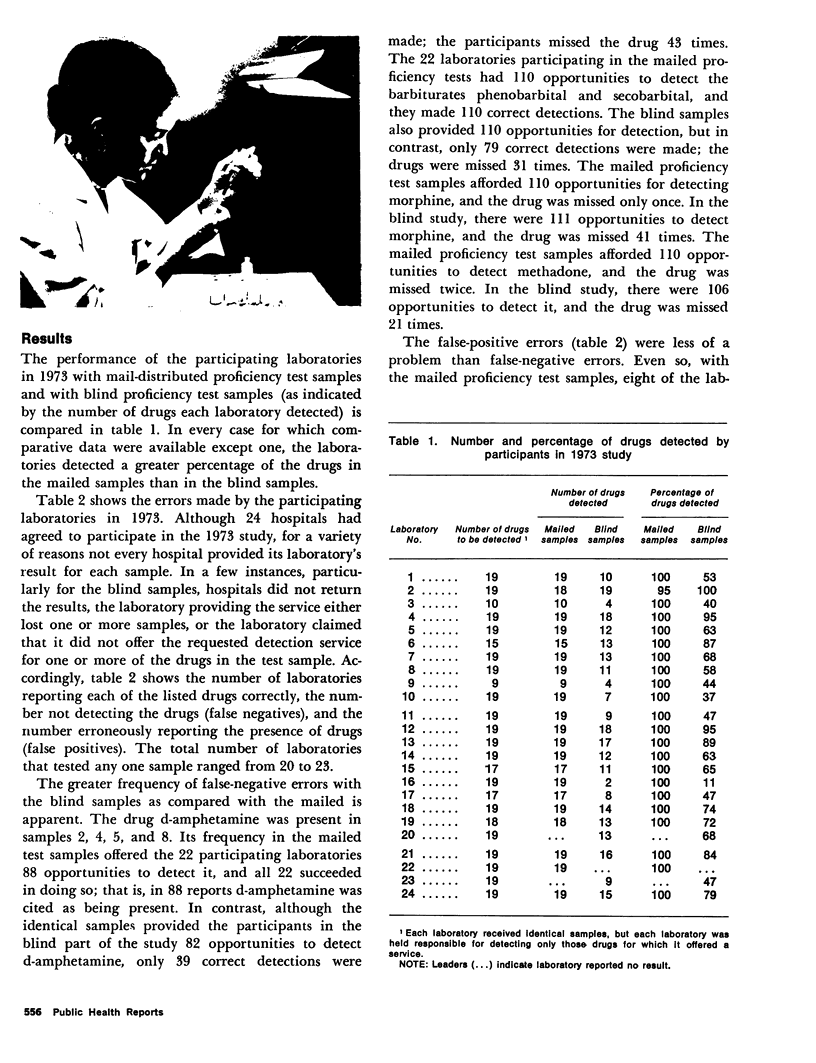
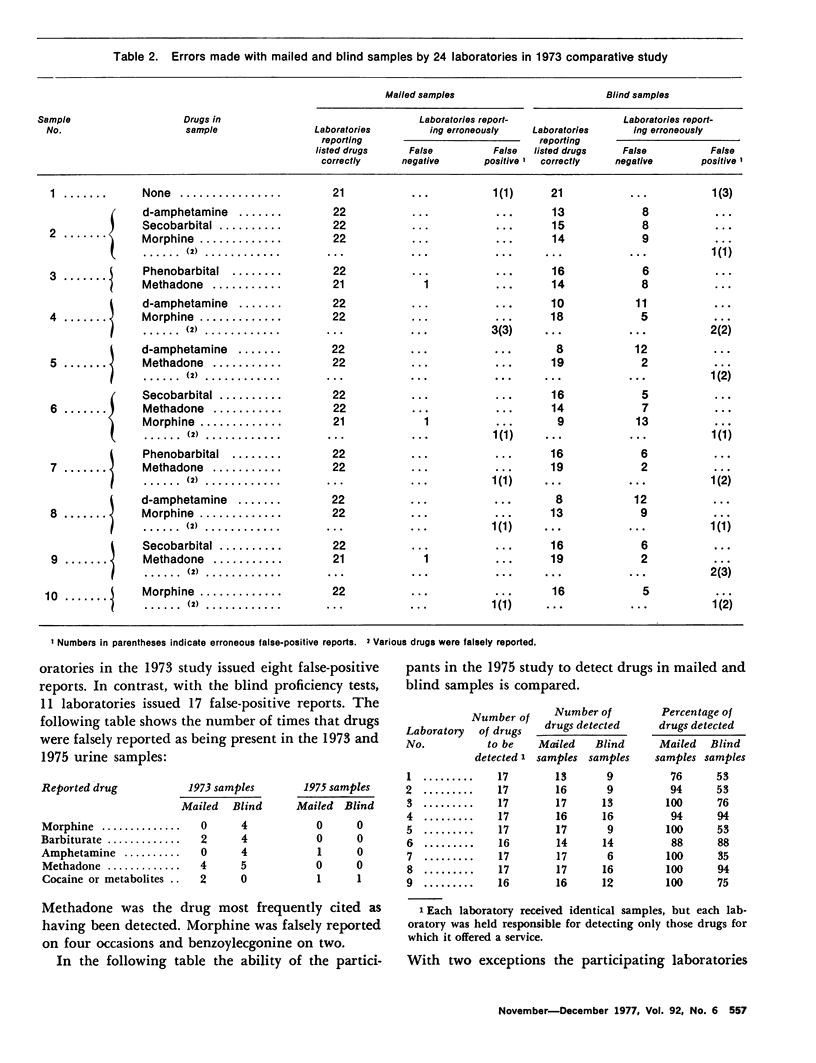
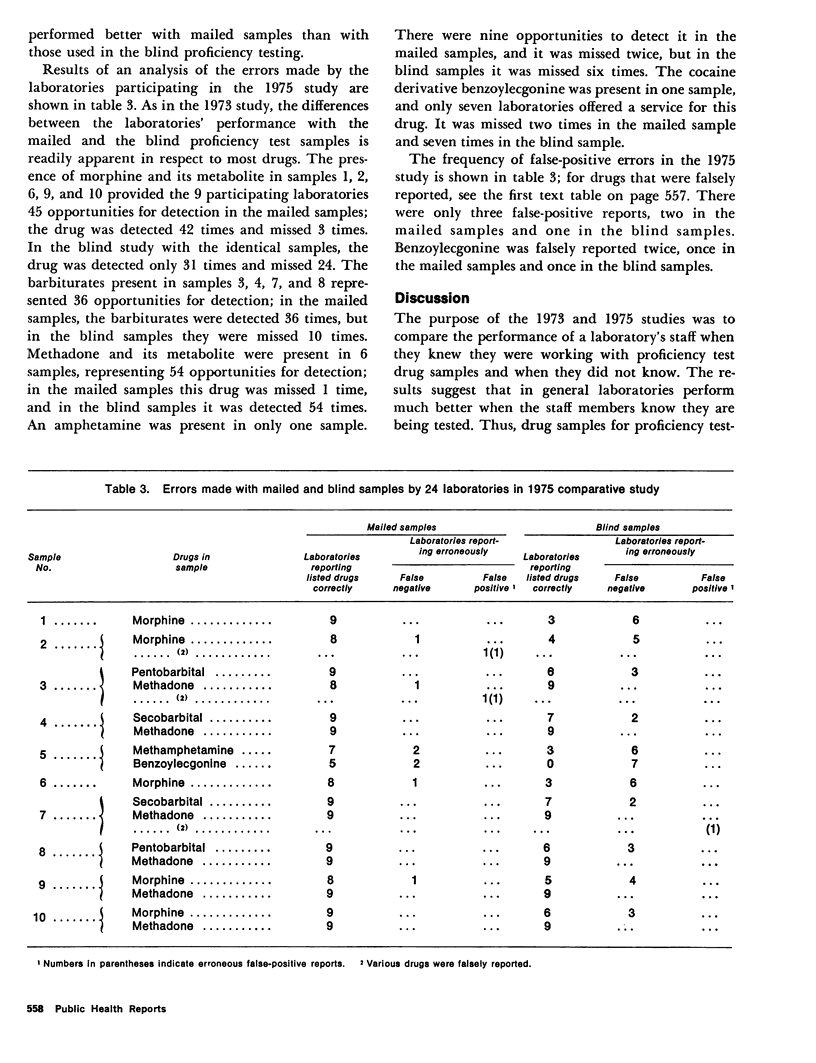
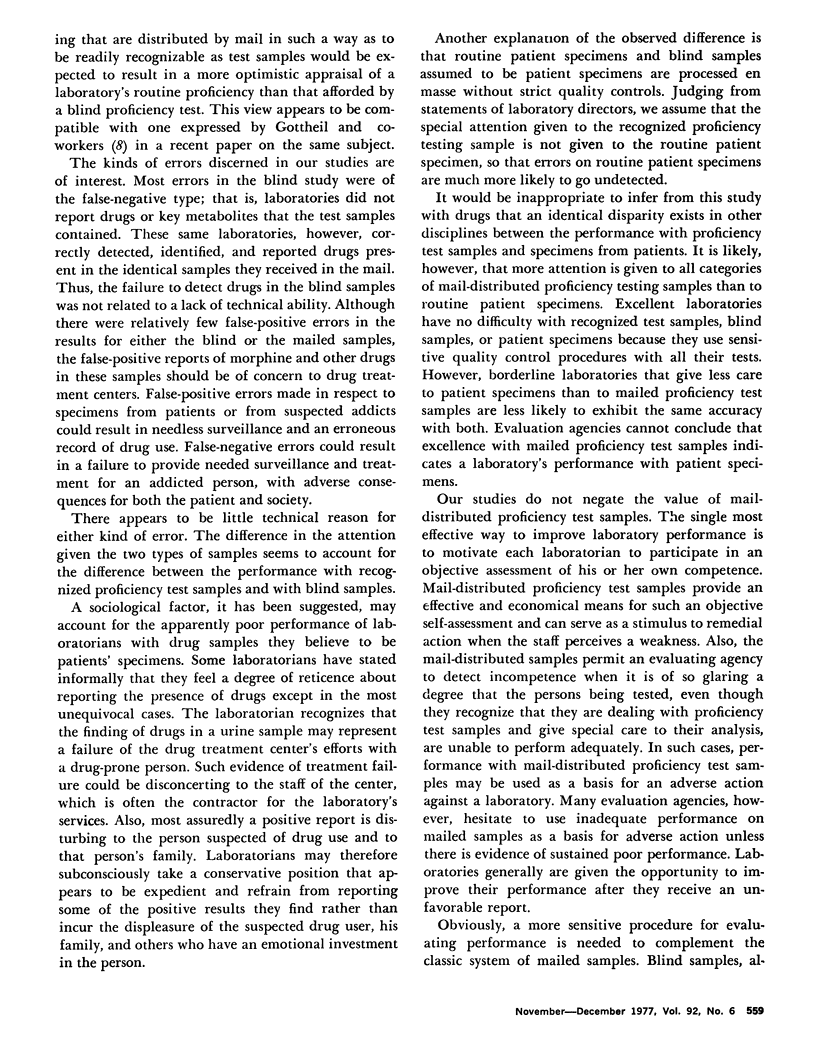
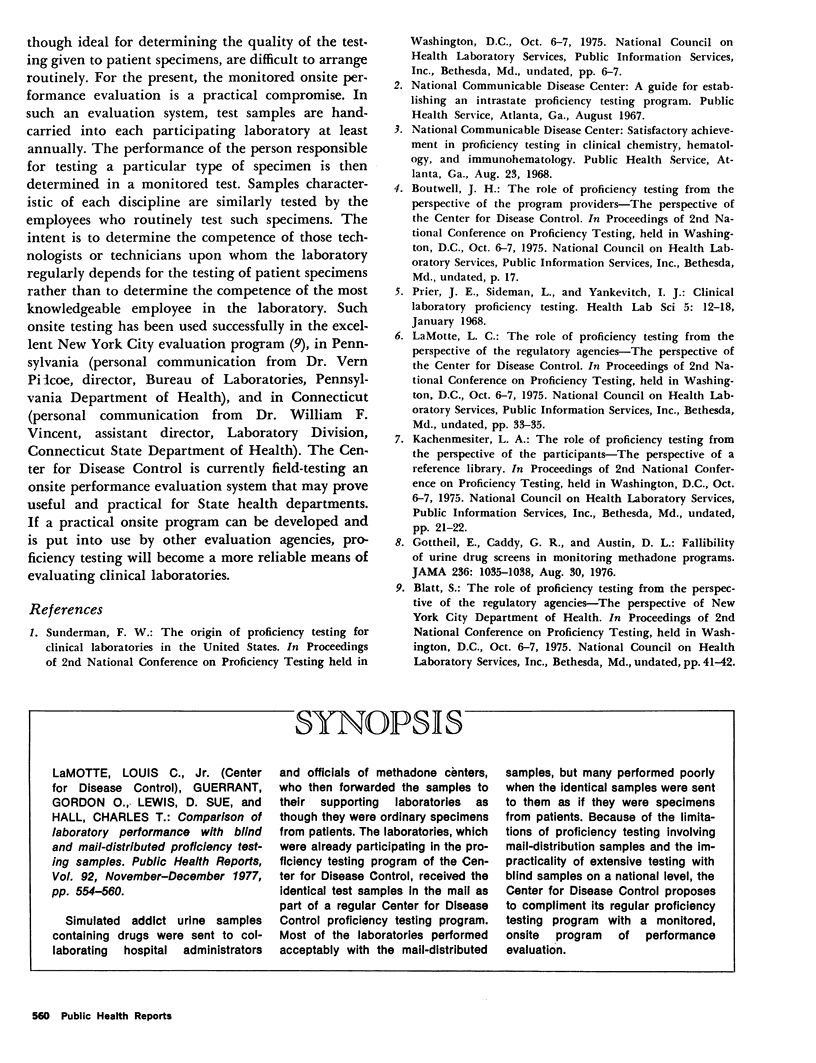
Selected References
These references are in PubMed. This may not be the complete list of references from this article.
- Gottheil E., Caddy G. R., Austin D. L. Fallibility of urine drug screens in monitoring methadone programs. JAMA. 1976 Aug 30;236(9):1035–1038. [PubMed] [Google Scholar]
- Prier J. E., Sideman L., Yankevitch I. J. Clinical laboratory proficiency testing. Health Lab Sci. 1968 Jan;5(1):12–18. [PubMed] [Google Scholar]



